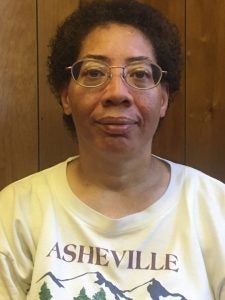A historic testament of Alice Jackson Stuart
Published 9:59 am Wednesday, October 24, 2018
Have you ever been denied something because of who you are? Make you think? Alice Jackson Stuart experienced this such denial. Stuart, born in Richmond on June 2, 1913, to Dr. James Jackson and Clara Kersey was the oldest of three children. As a young adult she attended Virginia Union University in Richmond graduating with a Bachelor of Arts in English. While there she became a member of Theta Sigma Theta from Virginia State College (now Virginia State University).
Afterward, in August 1935 Stuart applied to graduate school at the University of Virginia (UVA) in Charlottesville. She desired to obtain her Master of Arts in French. Stuart was the first African-American woman to do so. Unfortunately, she was denied acceptance into the school based on “good and sufficient” reasons. Mind you she was never told what those reasons were. Jim Crow at its finest. Stuart petitioned the NAACP for help, who threatened legal action against the university. Stuart’s situation caught the eye of a student organization called the NSL (National Student League).
Consequently, the NSL wrote extremely publicized letters to UVA’s Board of Visitors and its President John Newcomb condemning the act of continuous educational inequality. They also set up an open forum for student discussion on the issue. This put pressure on the school because President Newcomb received half a dozen letters from other NSL university branches.
Stuart’s application rejection was enough to bring change in Virginia. African-Americans were provided separate but equal higher education opportunities. In December 1935 the Virginia State Board of Education announced that Virginia State University in Petersburg would establish a graduate school for African-Americans, the first one in Virginia. In addition, the Virginia General Assembly in February 1936 passed the Dover Act or House Bill 470 which paid black students tuition and travel expenses to attend school outside of Virginia. From this hundreds of African-Americans received higher education until around 1966. Because of the Dover Act in 1950, Gregory Swanson became the first African-American at UVA’s law school.
Moreover, the experience did not stop Stuart. It inspired her to go on and attend Columbia University with the money she got from the Dover Act graduating from there with a Master of Arts in English. Subsequently, Stuart taught at Bethune-Cookman College, Howard College and many high schools. In addition, she was awarded a fellowship from The Ford Foundation.
Sadly, on June 13, 2001, Stuart died at 88 years old. Shortly after she was honored by the Virginia Senate with a Joint Resolution No. 40 honor. Even UVA, who denied her entrance into graduate school along with African-American students, honored her in the 1980s. In 2012, Stuart was given a posthumous award by the Library of Virginia in its Virginia Women in History for her life’s work. Stuart was inspiring to African-Americans in that she led by example proving that one set back in your educational journey or life in general should not deter you from pursuing your dreams. Find a way to make them happen whatever paths opportunity brings.
Judy Moore, a tour guide at The Central High Museum can be reached at ju.mo39@ live.com.





